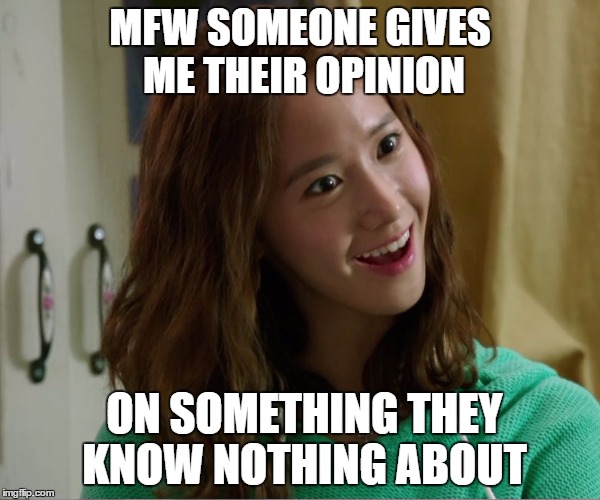If someone gives opinions on topics they know nothing about they re an ultracrepidarian

If someone gives opinions on topics they know nothing about, they’re an ultracrepidarian.

We all encounter individuals who feel the need to express their opinions on topics they have little to no knowledge about. Whether it’s a dinner table discussion or a heated online debate, these individuals confidently assert their viewpoints without any real background or understanding. For this behavior, there is a fascinating term: ultracrepidarian.
What is an ultracrepidarian?
The term “ultracrepidarian” originated from a Latin phrase “ultima crepidam,” which means “beyond the shoe.” The phrase comes from an anecdote about a Greek painter named Apelles. When a shoemaker tried to point out a flaw in his painting, Apelles listened to the criticism about the art but disregarded the shoemaker’s opinions about things beyond his expertise, specifically sandals.
In modern terms, an ultracrepidarian is someone who constantly offers opinions and advice on subjects they lack knowledge or expertise in. They often portray themselves as experts and are quick to jump into discussions to offer their unwarranted insights. This behavior can be quite frustrating for those who genuinely seek accurate and informed opinions.
Ultracrepidarianism and its presence in our lives

In today’s digital age, where social media and online forums dominate our communication, ultracrepidarianism has become increasingly prevalent. It seems like everyone has an opinion on everything, regardless of their actual understanding. This phenomenon is primarily due to the ease of access to information, leading to individuals feeling empowered to weigh in on any topic, often without proper research or expertise.
Ultracrepidarianism is especially noticeable in fields such as science, politics, health, and technology. Experts within these domains spend years studying and dedicating themselves to gaining knowledge and understanding. However, ultracrepidarians are ready to challenge their expertise with unsupported assertions, false information, and outdated beliefs.
The impact of ultracrepidarianism
While the presence of ultracrepidarians may sometimes be amusing or frustrating, their impact can be detrimental. When individuals with no real understanding or expertise express their opinions as facts, it can lead to misinformation being spread, confusion among the public, and an erosion of trust in genuine experts.
Moreover, ultracrepidarianism dismisses the importance of extensive study and experience in certain subjects. It undermines the value of true expertise and discourages those who have invested time and effort in genuinely understanding a field from sharing their insights.
Handling ultracrepidarians tactfully
Dealing with ultracrepidarians requires tact and patience, especially in social situations. Instead of engaging in arguments or trying to prove them wrong, it is often more productive to redirect the conversation towards reputable sources of information or encourage them to explore different perspectives.
When faced with an ultracrepidarian online, it’s essential to approach the situation with respect and critical thinking. Providing well-researched sources, sharing credible articles, and calmly debunking false information can help steer the discussion towards a more informed and accurate direction.
Conclusion
Ultracrepidarianism continues to be a prevalent challenge in our information-driven society. While everyone is entitled to their opinions, it is crucial to recognize the importance of knowledge, expertise, and informed discussions when tackling complex topics. By promoting fact-based conversations and respecting genuine expertise, we can work towards a more informed and constructive society.
Source: Merriam-Webster
Related Posts
Quick Links
Legal Stuff

